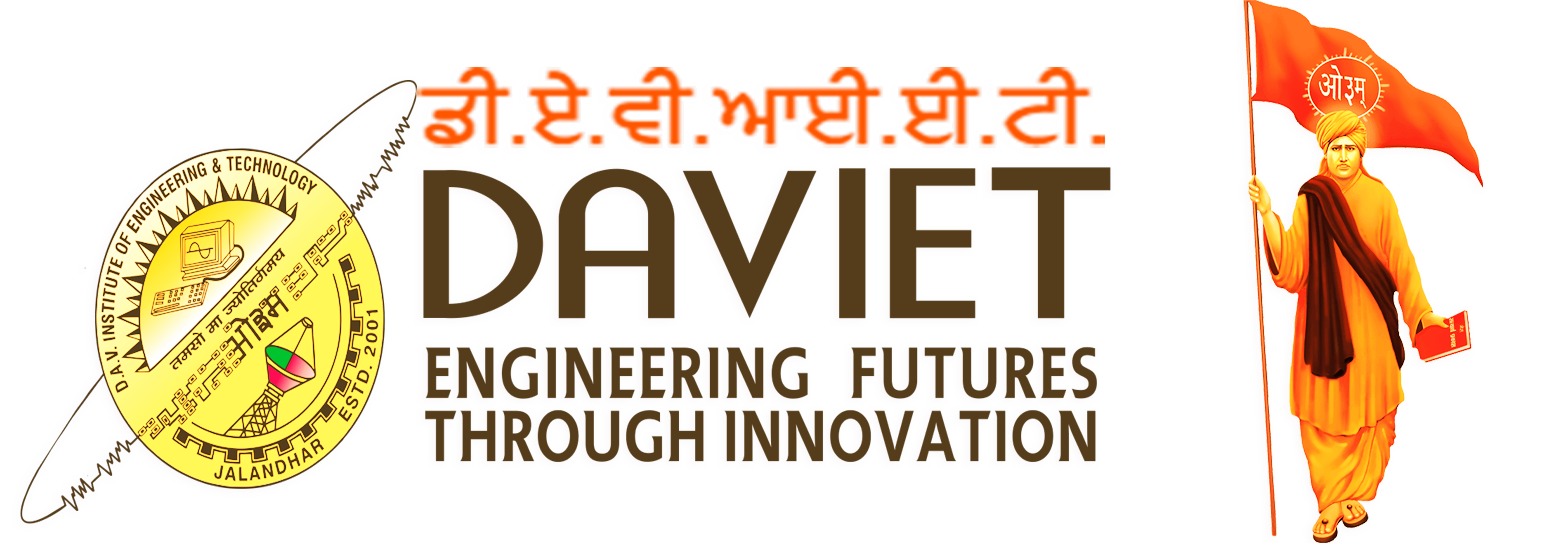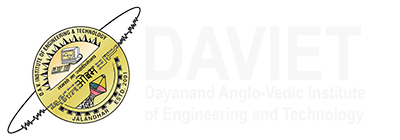VALUE ADDITION PROGRAMMES
Keeping in view, the present technology trends of electronics industry, various value addition programs have been identified. The career path of the students is decided based on their interest in tune with the following specialized areas of technology:
# EMBEDDED SYSTEM DESIGN
# CCNA
# VLSI DESIGN USING VERILOG.
To inculcate a spirit of scientific temper and analytical thinking and train the students in contemporary technologies to meet the needs of the industry, Department of Electronics & Communication Engineering of DAVIET has taken an initiative to offer value-added courses for better interfacing with the industry in order to bridge the gap between the curriculum and the requirements of the industry.
To achieve this, the department is offering a course on “Enhanced System Software”, which would benefit the students by offering them International Industry Level Exposure by the mean of 10 week workshop. The workshop consists of three modules namely Advanced C & System Level Data Structures, Unix Internals & Kernel Programming and Linux Device Drivers, which are explained as under:
Advanced C & System Level Data Structures
This module starts from where basic C ends. It would concentrate on every type of data structure that a professional in the IT industry would require. Pointers upto fourth level of referencing, pointers through functions, files and arrays alongwith various implementations of Linear and Non-linear data structures are programmed.
Key Features
Linked lists, stacks, queues, Binary Trees, AVL Trees, Red Black Trees, Infix, Prefix and Postfix notations alongwith Google Interview questions.
Unix Internals & Kernel Programming
This module focuses on Unix Kernel development. The Unix shell commands are explained by making their user-defined versions in C language. From File Management, to Process Management, to Memory Management, every single concept is explained through Kernel Programming. Programming of IPCs namely signals, named pipes, unnamed pipes, message queues, semaphores, shared memory and sockets are dealt with thoroughly by programming all the Kernel data structures related to them.
Key Features
Internal representation of Unix File Structure through C programming.
Linux Device Drivers
Drivers are imperative in the context of intelligent devices. This module deals with explaining Character Devices thoroughly with the detailed programming of Major Number, Minor Number, IOCTLs and their various linking techniques. Kernel Timers, Workqueues and Tasklets are programmed and linked to the Kernel.
| Research Lab Name | Facilities/ Equipment/ Software Details | |||||
| Artificial Intelligence/ Machine Learning Lab(AICTE Sponsered Lab) | • Softwares on Cloud and Server: Petal AI &ML IoTVer 3.0
• Software on Cloud and Kit: AL & ML-IoT Automation suite-3 |
|||||
| Light Wave Communication and Research Lab | • OPTSIM
• COMMSIM • QUALNET |
|||||
| VLSI Design and Embedded System Lab | • MATLAB
• Bloom with DSP-10 USERS • Xilinx Foundation Series Software. • UNIVERSAL Programmer/CPLD Board (48 pin burner) • Practical Kits for Embedded ARM programming |
|||||
| Faculty Name | M.Tech. Guided | Ph.D. Guided | PhD (In Progress) | |||
| Dr. Neeru Malhotra | 4 | 0 | 0 | |||
| Dr. Jagjit Malhotra | 0 | 3 | ||||
| Dr. Jagroop Singh | 0 | 6 | 1 | |||
| Dr. Bindiya Jain | 1 | 0 | 0 | |||
| Dr. Kiran Ahuja | ||||||
| Dr. Amit Arora | 1 | 0 | 0 | |||
| Dr. Love Kumar | 4 | 0 | 0 | |||
| Dr. Hari Singh | 1 | 0 | 0 | |||
| Mr. Navleen Singh Rekhi | 3 | 0 | 0 | |||
Key Features
Kernel Compilation


